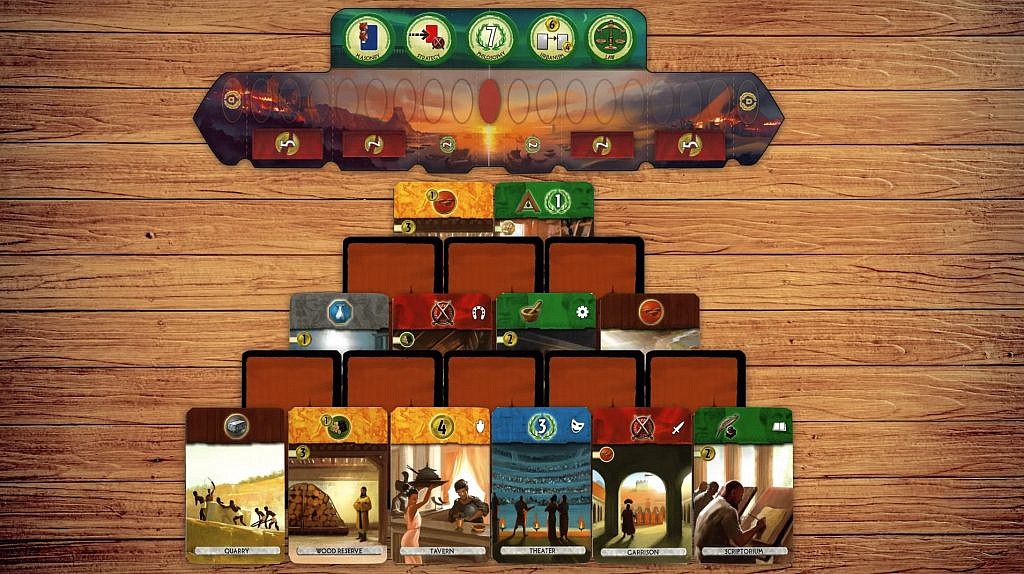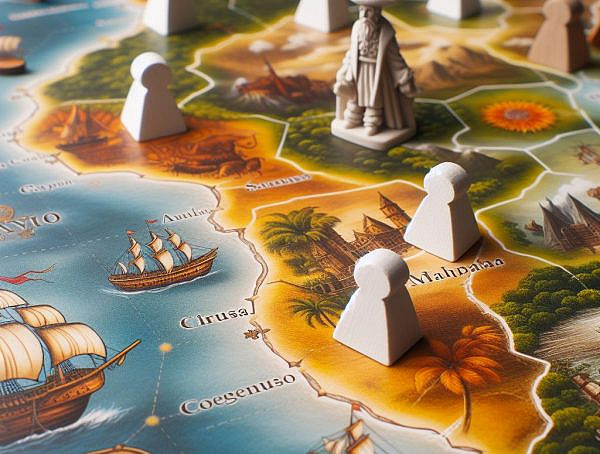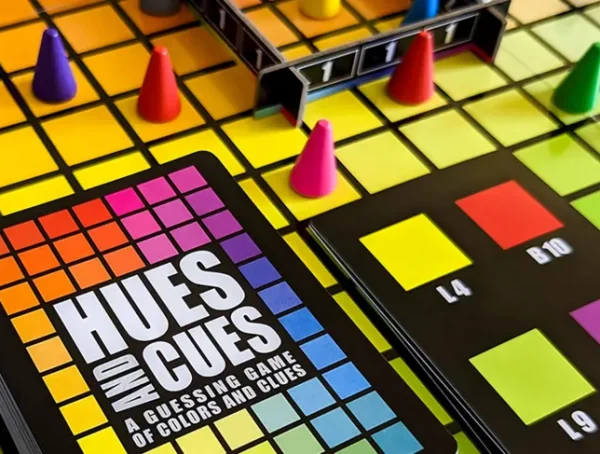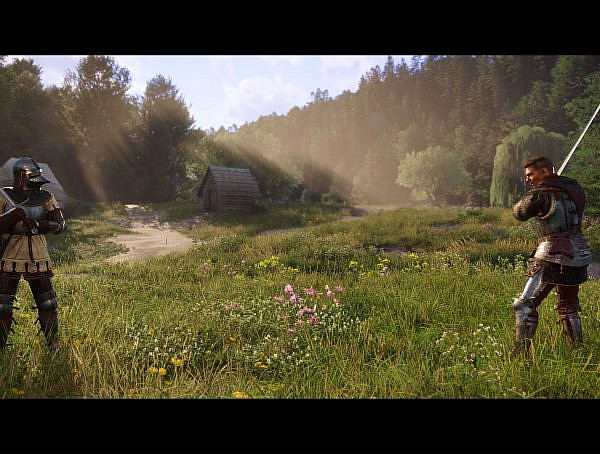7 Wonders Duel is an adaptation of a popular board game designed for two players. The game, which is smaller than its predecessor, is played with cards, tokens and a very small board that is used for tracking victory conditions and so on. There are three different ways to win the game: by science, military or point victory. These are achievable by collecting a set of science cards, advancing the military tracker far to your opponent’s end (by collecting military cards), or collecting enough points that are counted after the game ends.
The game consists of 3 rounds, or eras, as they are presented, where players take turns picking cards from the table. The cards are set up into a pyramid-like structure, so that they lock other cards further down the line. It is important to choose the card that does not reveal something your opponent wants. The trick is, some cards are placed face down, so you cannot always know what you will unlock for your opponent.
As with the board game version, there are also wonders you can choose to build. The effects of the wonders are diverse, and each player gets 4 uncompleted wonder cards at the game start. Player can build them with resources they have gathered from the era cards. The art of the wonder cards, and in the game in general, is very clear and precise. The art is noticeable but does not distract players from seeing the most important things, even though the cards are rather small.
First era setup. Credit: screen captured from How to Play 7 Wonders Duel in 4 Minutes – The Rules Girl
Playing the game is generally fun, and it definitely has enough strategic depth in it to be enjoyable multiple times. However, if one player falls behind on resources in the first era, it is very difficult to climb back into the game and win. This probably is the biggest downside to the 7 Wonders Duel, as after the first era, it is sometimes possible to predict who will win the game. That said, the game is better when both players have played it even a couple of times and understand the importance of gathering enough different resources in the first era. Then the game really becomes a duel of getting enough resources for yourself and blocking resources from your opponent.
Learning the game is fast, and one game usually takes around half an hour. The box says the game is for ages 10+, and I tend to agree. Even though the mechanics and rules are simple, understanding the strategic depth can be too much for younger people.
The rulebook could be better, and it is sometimes hard to find that one rule you forgot. Luckily, you won’t be needing the rulebook much after playing a couple of rounds.
There is one expansion released for the game (7 Wonders Duel: Pantheon), but as I have not played with the expansion, I am not considering it in this review.
———
Designers: Antoine Bauza, Bruno Cathala
Publisher: Repos Production (and many others)
Year published: 2015
Age: 10+
You might also like
More from Game Reviews
Animal Crossing: Pocket Camp but without the microtransactions?
Pocket Camp Complete is a cute and relaxing mobile game that offers the full experience with a one-time purchase.
Stories Untold – An Experimental Psychological Horror Adventure
Stories Untold is a narrative-driven horror adventure game and a truly remarkable take on the genre. The four episode anthology …
Kingdom Come: Deliverance II – A Sequel Worthy of a Knight
KCD II delivers a living, breathing medieval roleplaying game to its players. #RPG, #kingdomcome, #openworld

















1 Comment
Ahh, indeed, the rulebook! Getting back to this game after a break is somewhat of a pain as the small rules are well hidden in the rulebook…